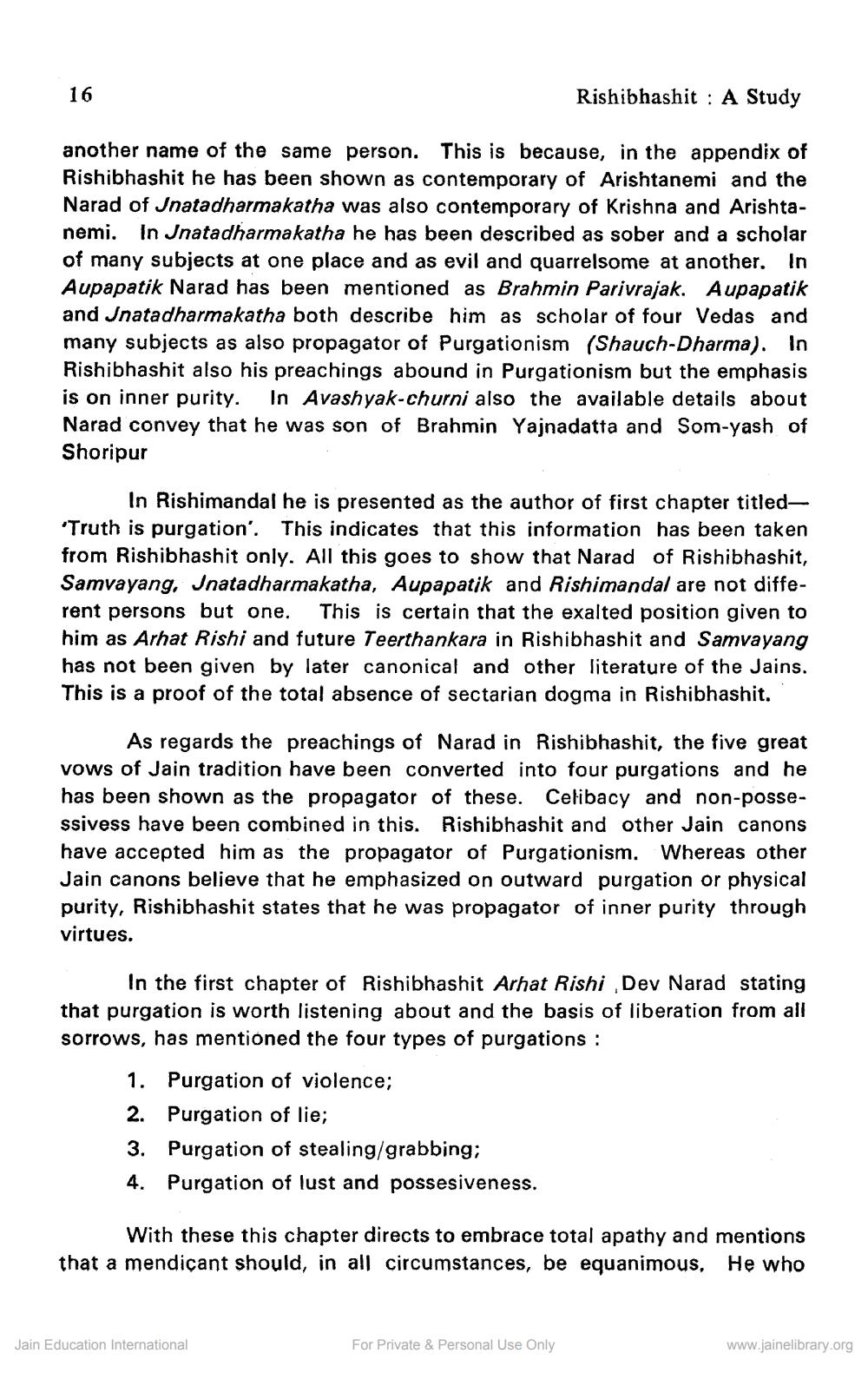________________
16
Rishibhashit : A Study
another name of the same person. This is because, in the appendix of Rishibhashit he has been shown as contemporary of Arishtanemi and the Narad of Jnatadharmakatha was also contemporary of Krishna and Arishtanemi. In Jnatadharmakatha he has been described as sober and a scholar of many subjects at one place and as evil and quarrelsome at another. In Aupapatik Narad has been mentioned as Brahmin Parivrajak. Aupapatik and Jnatadharmakatha both describe him as scholar of four Vedas and many subjects as also propagator of Purgationism (Shauch-Dharma). In Rishibhashit also his preachings abound in Purgationism but the emphasis is on inner purity. In Avashyak-churni also the available details about Narad convey that he was son of Brahmin Yajnadatta and Som-yash of Shoripur
In Rishimandal he is presented as the author of first chapter titled 'Truth is purgation'. This indicates that this information has been taken from Rishibhashit only. All this goes to show that Narad of Rishibhashit, Samvayang, Jnatadharmakatha, Aupapatik and Rishimandal are not different persons but one. This is certain that the exalted position given to him as Arhat Rishi and future Teerthankara in Rishibhashit and Samvayang has not been given by later canonical and other literature of the Jains. This is a proof of the total absence of sectarian dogma in Rishibhashit.
As regards the preachings of Narad in Rishibhashit, the five great vows of Jain tradition have been converted into four purgations and he has been shown as the propagator of these. Celibacy and non-possessivess have been combined in this. Rishibhashit and other Jain canons have accepted him as the propagator of Purgationism. Whereas other Jain canons believe that he emphasized on outward purgation or physical purity, Rishibhashit states that he was propagator of inner purity through virtues.
In the first chapter of Rishibhashit Arhat Rishi Dev Narad stating that purgation is worth listening about and the basis of liberation from all sorrows, has mentioned the four types of purgations :
1. Purgation of violence; 2. Purgation of lie; 3. Purgation of stealing/grabbing; 4. Purgation of lust and possesiveness.
With these this chapter directs to embrace total apathy and mentions that a mendicant should, in all circumstances, be equanimous, He who
Jain Education International
For Private & Personal Use Only
www.jainelibrary.org




